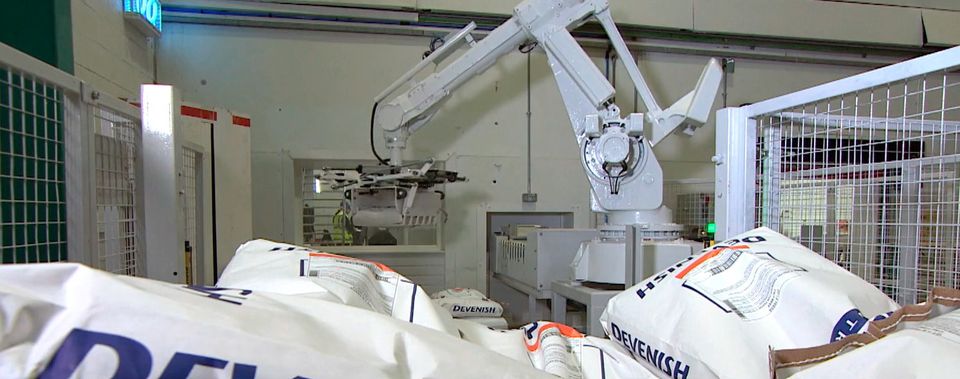Northern Ireland animal nutrition firm Devenish has turned around a pre-tax loss of £14m to make pre-tax profit of £22m over the year to May 2024.
Devenish Nutrition chief executive Tony McEntee said the pre-tax profits followed the sale of the company’s business in North America, completed in February 2024.
He warned that it continued to face the unpredictable effects of global factors such as tariffs under the new Trump administration in the US, along with the impact of unrest in the Middle East and Eastern Europe.
The Belfast-based company manufactures pre-mix containing enzymes, minerals and vitamins which is added to feed for farm animals, particularly those being farmed intensively.
The company’s accounts for the year to May 31 2024 have been seen by the Belfast Telegraph though they are not yet available at Companies House.
Total turnover, including discontinued operations, fell 14% from £270.2m to £231.2m.
Tony McEntee, chief executive of Devenish Nutrition
Mr McEntee said he had been hired into the role in 2023 to turn round the business. “There have been a range of issues over a number of years. Debt had built up. We were under pressure….
“First thing is, you had to sort out the balance sheet so that we can pay our way.”
As a result, the company had sold its North America and Mexico business. A research firm in Dowth in Co Meath was sold to the Irish government, followed by the sale of its Korean business.
“North America and Mexico were sold and that allowed us to repay all our debt and catch up with any creditors and put some firepower on the balance sheet and start regrowing.”
Turnover was down as a result of falling commodity prices, he said. “A lot of what we sell is commodities that we add some value to. If commodity prices are high, turnover is high, if commodity prices are low, turnover is low, we just have to maintain the margin piece.
“It’s not good for us when sales are up because commodity prices are up and that puts pressure on our customer base.”
Devenish Nutrition develops and manufactures animal feed
He described the year to May 2024 as a “year of consolidation”. “We had an EBITDA loss in 2023 of £1m and we went to a positive EBITDA of £5m in the year to May 2024.
“That £5m is not huge but it’s cash positive as opposed to cash negative, so we would see it as a year of consolidation and just general refocusing of the core business.”
Its UK operations include a mill in Duncrue Street, Belfast, and mills in Widnes and Thirsk in England.
Over the year, he said there had been a “small” number of redundancies, mainly at a senior level. Overall, the workforce at the privately-owned business had fallen from 557 to 506.
He said that it was “very pleased with progress and continuing to improve, which is the key point”. “The Irish market and the UK market is very solid with some good growth internationally.”
But he said global volatility was a constant factor to reckon with and that the company’s deal in South Korea had been well-timed, ahead of recent unrest including the impeachment and arrest of its president, Yoon Suk Yeol.
“We did the transaction with Korea this time last year. Would that transaction be done today with a listed Korean company, I’m just not sure.
“Sometimes you just need to be lucky… Volatility is the name of the game in every space at the moment, not just agriculture.”

